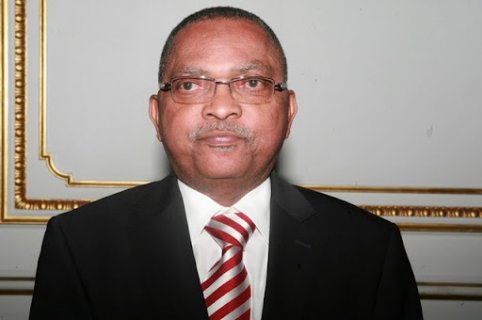For Manuel Aragão, the existing jurisdictional system in Angola "is diffuse, where there is a common jurisdiction headed by the Supreme Court (TS) and a specialized jurisdiction (Constitutional Court) and each of these bodies is called upon, according to its nature, to give answer the questions submitted to them".
"In the rule of law, this structure and organization is determined in order to guarantee the implementation and effectiveness of the other principles, such as the principle of the right to effective jurisdictional protection", reads the declaration of vote of the presiding judge of the TC, who voted passed the Constitutional Revision Law (LRC).
The plenary of TC counselors judges approved the LRC, initiated by the Angolan President, João Lourenço, rejecting only the norm on the submission of reports from the superior courts, TC, TS and the Supreme Military Court, to the National Assembly (parliament) and to the President.
The validation of the LRC is expressed in judgment 688/2021, on the Preventive Inspection of the Constitutional Revision Law, consulted by Lusa, which states that the revised legal diploma "is in accordance with the principles and limits established in the Constitution of the Republic of Angola).
At least two of the ten councilor judges of the TC of Angola had a losing vote to the LRC, namely the councilor judge Carlos Teixeira and the presiding councilor judge of that higher instance, Manual Aragão.
"The Constitutional Court is not called upon to recommend how it can be verified in the judgment in question. Such recommendations tend to demonstrate an invasion of the exercise of legislative powers, infiltrating as an incident in the legislative procedure, disturbing the principle of separation of powers", he says the magistrate in his explanation of vote.
The LRC proposes that the superior courts of the Republic of Angola belong to the Supreme Court, the Constitutional Court and the Supreme Military Court, "changing the original disposition of the superior courts, but maintaining their respective functions".
In the opinion of Manuel Aragão, as the ruling maintained the structure and functioning of the TS and the TC, "admitting the existence of a hierarchy (whether functional or protocol) between them may constitute a suicide for the democratic rule of law".
Insofar as, he argues, its implementation "may create damage to legal certainty and certainty, as to the fulfillment of its decisions".
The LRC, in proposing the aforementioned article, argues the magistrate, "contrary to the functional structure of the Supreme and Constitutional Courts, taking into account the nature of each one of them. The TS as a superior body of common jurisdiction and the TC as the maximum interpreter of the Constitution and inspecting the organs of State power".
The new order of precedence "is merely protocol and does not affect the competence of each of the higher courts. It is the understanding of the Constitutional Court that the norm respects the material limits established by the CRA", says, however, the plenary.
The ruling validated the rules on the 70-year retirement of judges from any jurisdiction, the independence of the National Bank of Angola (BNA, the vote of Angolan citizens abroad, the limits of private property and the withdrawal of gradualism in the current CRA).
The unofficial, mandatory and permanent electoral registration, the updating of the electoral register abroad, the date of the general elections, which should be held "preferably during the second half of August", the extension to 15 members of the Council of Republic also deserved consent of the TC.
Regarding the retirement of judges at the age of 70, Manuel Aragão states that the referred rule is "confusing and is covered with numerous unconstitutionalities, assuming that the interruption of the mandate for the functions of a counselor judge, outside the common jurisdiction, may have reaching the age foreseen with the retirement age, it manifestly violates the principle of the immovability of judges".
The presiding judge of the TC also considers that the "right and limits of private property", provided for in the LRC, "not having established the principle of indemnification, for just cause or due to due reasons, violates the principle of private property enshrined in article 14 of the CRA ".
The Constitutional Revision Law will be returned to the Angolan President to be referred back to parliament, as a legislative body.







